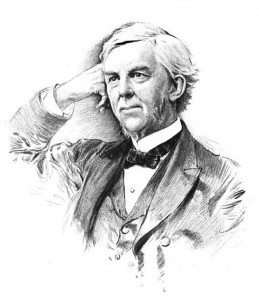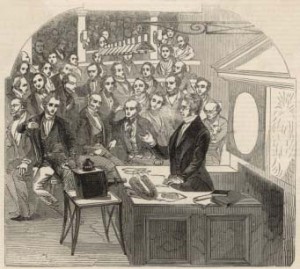 To George Sturgis
To George Sturgis
Rome, Jan. 22, 1927
Dear George,
I have received your two letters, the new letter of credit for $4000, and my yearly account, for all of which many thanks. Reduced to the terms which ultimately interest me, the account amounts to this: that my last year’s income was about $7000, of which I spent one half; and that the other half, together with the non-recurring extra “income” of another $7000, was added to my capital, which is now about $140,000. This, according to my standards, is a vast sum, and I am naturally highly pleased at being so comfortably off in my old age. I am following your advice in not being too economical, and have had guests here–a very easy way of amusing myself–in the persons of two of the Chetwynd children, nephew and niece of my late friend Moncure Robinson. Betty Chetwynd, aged 19, has now returned home to London, but Randolph, aged 23, is staying on, and is excellent company, without interfering at all with my habits or being, I hope, too much bored, as he does what sightseeing he likes in the morning and goes to teas, dinners, and dances when he is asked by his other friends in Rome, of which he has a good many.
From The Letters of George Santayana: Book Three, 1921-1927. Cambridge, MA: The MIT Press, 2002.
Location of manuscript: The Houghton Library, Harvard University, Cambridge MA

 To Oliver Wendell Holmes
To Oliver Wendell Holmes

